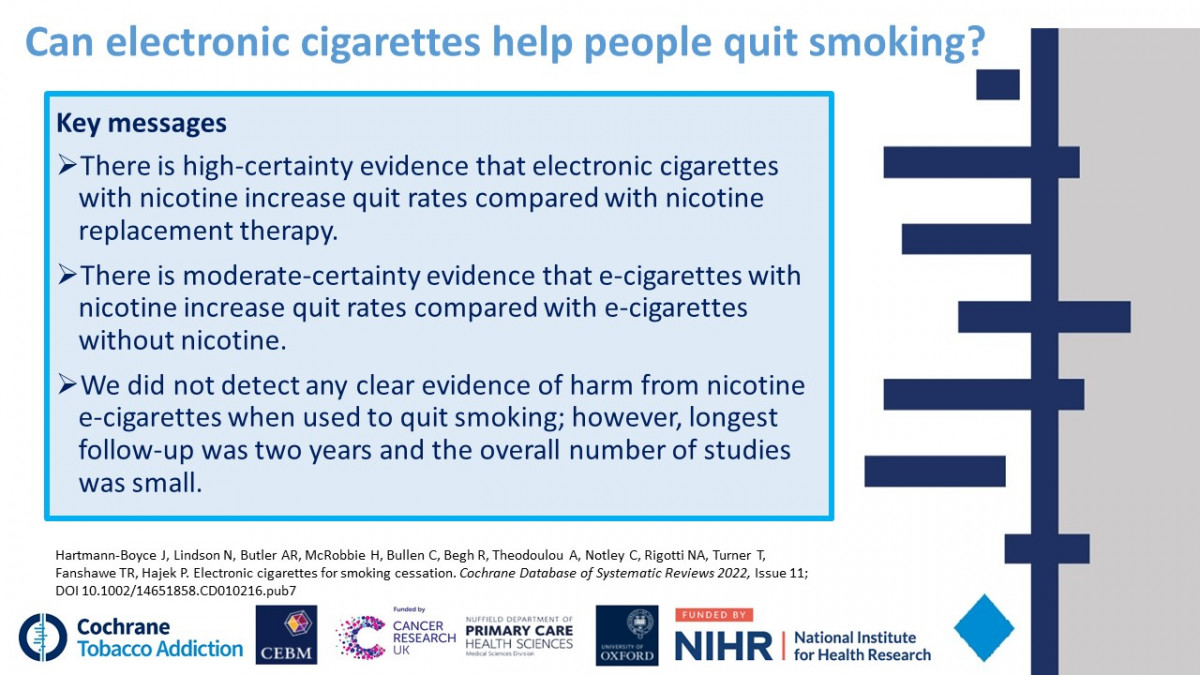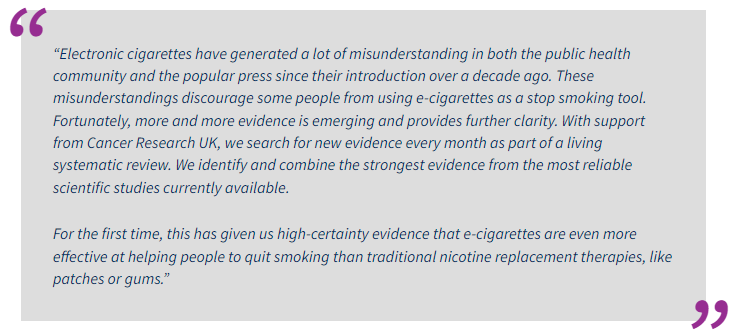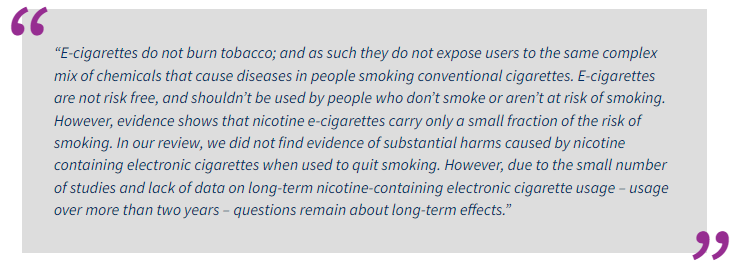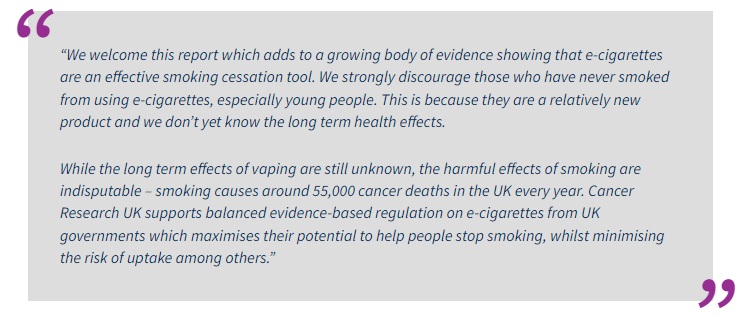A Cochrane review has found the strongest evidence yet that e-cigarettes, also known as ‘vapes’, help people to quit smoking better than traditional nicotine replacement therapies, such as patches and chewing gums.
New evidence published recently in the Cochrane Library finds high certainty evidence that people are more likely to stop smoking for at least six months using nicotine e-cigarettes, or ‘vapes’, than using nicotine replacement therapies, such as patches and gums. Evidence also suggested that nicotine e-cigarettes led to higher quit rates than e-cigarettes without nicotine, or no stop smoking intervention, but less data contributed to these analyses. The updated Cochrane review includes 78 studies in over 22,000 participants – an addition of 22 studies since the last update in 2021.
Smoking is a significant global health problem. According to the World Health Organisation (WHO), in 2020, 22.3% of the global population used tobacco, despite it killing up to half of its users. Stopping smoking reduces the risk of lung cancer, heart attacks and many other diseases. Though most people who smoke want to quit, many find it difficult to do so permanently. Nicotine patches and gum are safe, effective and widely used methods to help individuals quit.
E-cigarettes heat liquids with nicotine and flavourings, allowing users to ‘vape’ nicotine instead of smoking. Data from the review showed that if six in 100 people quit by using nicotine replacement therapy, eight to twelve would quit by using electronic cigarettes containing nicotine. This means an additional two to six people in 100 could potentially quit smoking with nicotine containing electronic cigarettes.

Dr Jamie Hartmann-Boyce, Associate Professor at the University of Oxford, Editor of the Cochrane Tobacco Addiction Group, and an author of the new publication, said:

In studies comparing nicotine e-cigarettes to nicotine replacement treatment, significant side effects were rare. In the short-to-medium term (up to two years), nicotine e-cigarettes most typically caused throat or mouth irritation, headache, cough, and feeling nauseous. However, these effects appeared to diminish over time.
Dr Nicola Lindson, University Research Lecturer at the University of Oxford, Cochrane Tobacco Addiction Group’s Managing Editor, and author of the publication said:

The researchers conclude that more evidence, particularly about the effects of newer e-cigarettes with better nicotine delivery than earlier ones, is needed to assist more people quit smoking. Longer-term data is also needed.
Michelle Mitchell, chief executive at Cancer Research UK, said:

- Read the full Cochrane review and plain language summary
- Learn more about Cochrane Tobacco Addition Group
- Science Media Centre: Expert reaction to cochrane review on electronic cigarettes for smoking cessation

Hartmann-Boyce J, Lindson N, Butler AR, McRobbie H, Bullen C, Begh R, Theodoulou A, Notley C, Rigotti NA, Turner T, Fanshawe TR, Hajek P. Electronic cigarettes for smoking cessation. Cochrane Database of Systematic Reviews 2022, Issue 11. Art. No.: CD010216. DOI: 10.1002/14651858.CD010216.pub7
This work was supported by Cancer Research UK [A ref. A29845]
To speak to a team member about this project please contact Dr. Hartmann-Boyce, jamie.hartmann-boyce@phc.ox.ac.uk or Dr. Lindson, nicola.lindson@phc.ox.ac.uk.

